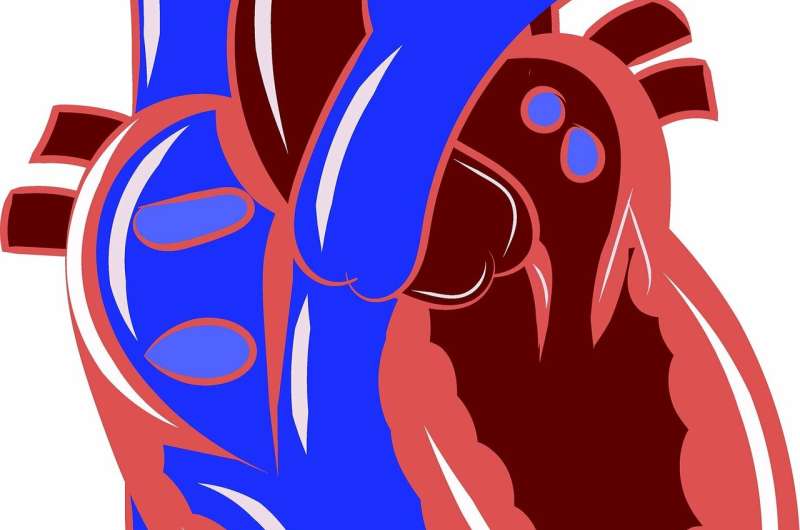Credit: CC0 Public Domain
A new review suggests "heat-not-burn" tobacco devices may threaten cardiovascular health. The review is published ahead of print in the American Journal of Physiology-Heart and Circulatory Physiology.
Heat-not-burn products—which may include noncombustible cigarettes—are relatively new in the U.S. In these, tobacco is heated to a lower temperature than traditional combustible cigarettes to release a tobacco-flavored vapor that contains nicotine. Unlike traditional cigarettes, heat-not-burn apparatuses do not produce fire, smoke or ash. However, devices of this kind release aerosol particles that pollute the air, including carcinogenic chemicals and molecules (reactive oxygen species) that can cause DNA damage and cell death.
E-cigarettes heat liquid nicotine-containing chemicals to their boiling point to produce a vapor that is inhaled. Studies suggest that lung injuries associated with traditional vaping could cause users to turn to heat-not-burn devices as an alternative to e-cigarettes. But "while emissions of pollutants from [heat-not-burn] tobacco products [are] likely reduced versus traditional cigarette smoking, these reductions may not be biologically significant," authors of a new review wrote. Emerging research suggests inhaling nicotine-rich tobacco vapor with a noncombustible device may be less hazardous than traditional cigarettes but that they carry health risks to the heart as well as the lungs.
The reviewers analyzed nearly 50 human and rodent studies and found that heat-not-burn tobacco product-associated inhalants led to a variety of markers suggestive of heart disease and impaired blood vessel health, including:
- High blood pressure.
- Reduced dilation of blood vessels.
- Stiffening of the arteries.
- Increased protein levels indicative of oxidative stress.
- Higher risk of heart arrhythmia in people with pacemakers.
- Increased heart rate.
- Reduced heart function.
The body of literature about the effects of heat-not-burn products is small, but it is growing as these devices become more widely used. "Further clinical, animal and in vitro studies must be developed to explore the cardiovascular effects of [heat-not-burn] tobacco products," the authors wrote. Additional research "will assist lawmakers and regulatory bodies around the globe in making informed decisions regarding this novel nicotine-delivery method."
Read the full article, "Heat-not-burn tobacco products: an emerging threat to cardiovascular health," published ahead of print in the American Journal of Physiology-Heart and Circulatory Physiology.
More information: Nicholas D. Fried et al. Heat-Not-Burn Tobacco Products: An Emerging Threat to Cardiovascular Health, American Journal of Physiology-Heart and Circulatory Physiology (2020). DOI: 10.1152/ajpheart.00708.2020
Provided by American Physiological Society























